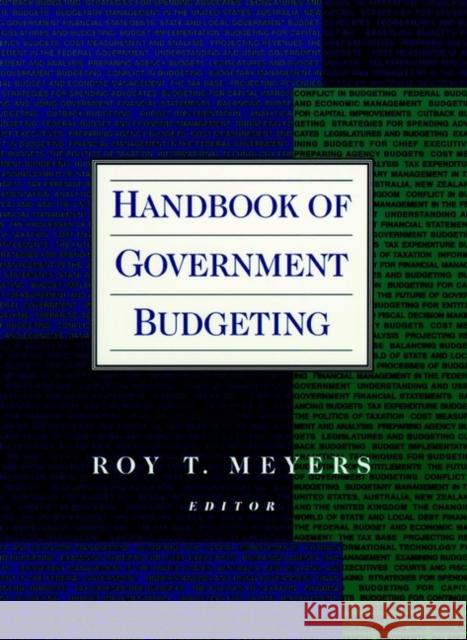Handbook of Government Budgeting » książka
Handbook of Government Budgeting
ISBN-13: 9780787942922 / Angielski / Twarda / 1998 / 804 str.
In this comprehensive reference, Roy T. Meyers provides an invaluable tool for anyone who wants to learn how the government budgeting process works, where it doesn't work, and how it can be improved. Filled with insights and wisdom from thirty-six contributors, this book presents an encyclopedic account of budgeting innovations today. Seven sections and twenty-nine chapters cover everything from current basic processes to the uncertain future of budgeting. Handbook of Government Budgeting is the definitive resource for anyone interested in the ways governments acquire and spAnd money.
Nationally and internationally respected experts such as Bob Bland, Naomi Caiden, James Chan, Philip Cooper, Larry Jones, A. Premchand, Irene Rubin, and Barry White offer the reader a full spectrum of information and ideas gleaned from a broad base of practice and research. The contributors are authorities in the fields of political science, economics, accounting, and management. They include executives, managers, analysts, consultants, and academics who have studied or worked with governments. The combined wisdom of these experts ensures the most concise, complete, and thought-provoking compilation concerning government budgeting today.
Each section of the Handbook of Government Budgeting presents multiple chapters offering different perspectives on budgetary subjects. Topics include: an overview of government budgeting; credit markets, the economy, and budget balancing; taxation in budgeting; the informational foundations of budgeting; budgeting by institutions; politics, management, and analysis in budgeting; and budgeting over time for large amounts. This comprehensive volume will prove a priceless tool to government professionals as well as professors of budgeting courses. Budgeting students and practitioners will find up-to-date information on the latest budget issues and politics in governments across federal, state, and local levels.
The teaching supplement is available directly from the author.
Interested parties should e-mail him at meyers@umbc.edu.











